Gen Z – Top Issues Facing Canada
August 31, 2023
From August 18 to 23, 2023, Abacus Data conducted a national survey of 2,189 adults exploring several topics related to Canadian politics and current events as part of our regular national omnibus surveys. This survey includes oversamples in Ontario (n=1,068) and Atlantic Canada (n=289) as well as an oversample of Gen Z (ages 18-27) for a total of n=399.
Our latest poll shows a wide lead for the Conservatives that has been growing since May. The Conservatives lead in all regions of the province (aside from Quebec) and among both men and women.
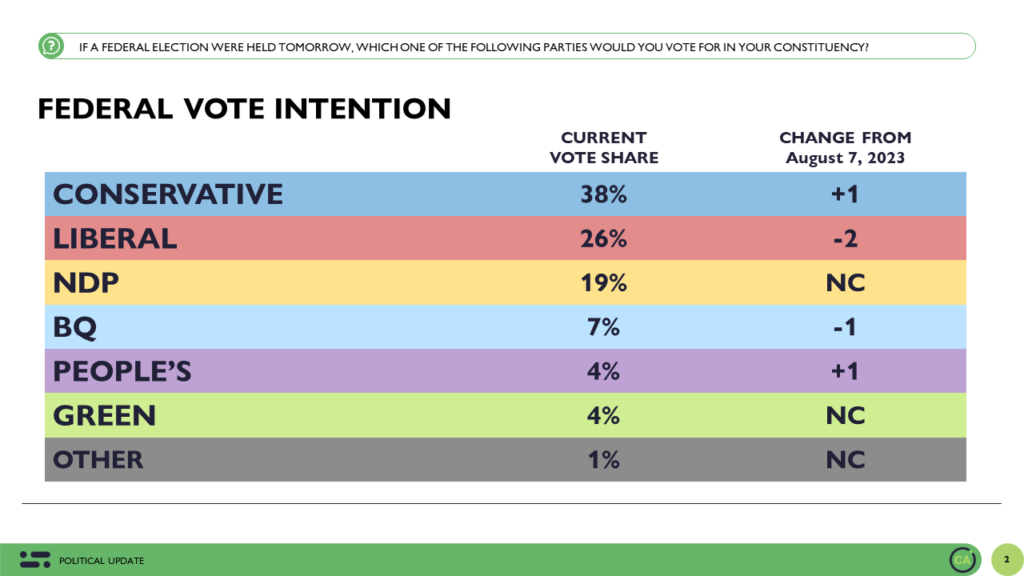
The Conservatives also hold the lead amongst all generations- including Gen Z. Like Millennials, the NDP seem to be pulling more votes on the left, much more so than older generations.
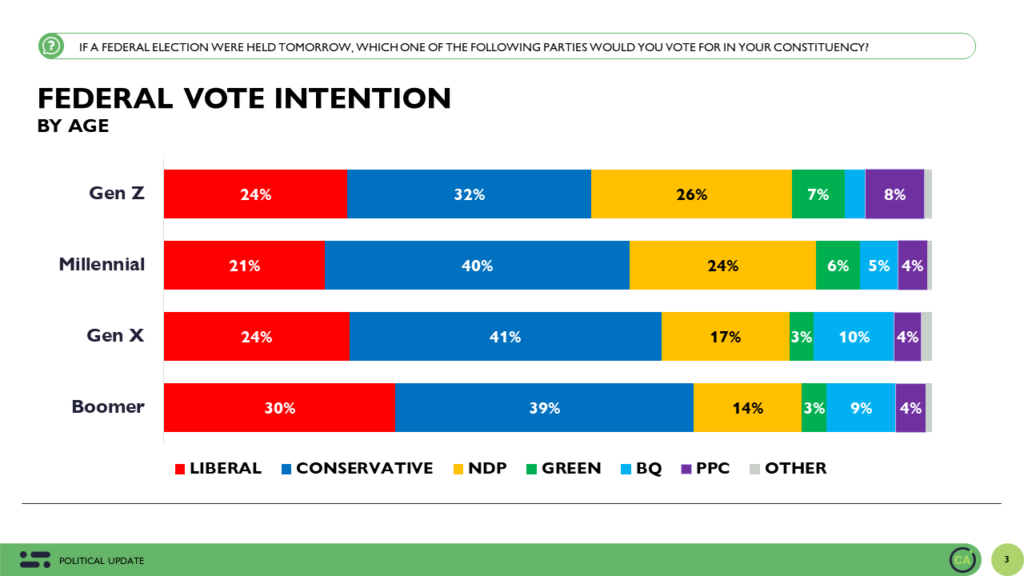
One possible reason for this lies in the top issues by generation- and the issues the federal parties are choosing to focus on. Looking at Canadians’ top five issues, there is generational alignment but also generational divide.
Canadians believe the most important issues facing Canada today are: the rising cost of living (73%), housing affordability and accessibility (47%), healthcare (45%), the economy (35%) and climate change and the environment (29%).
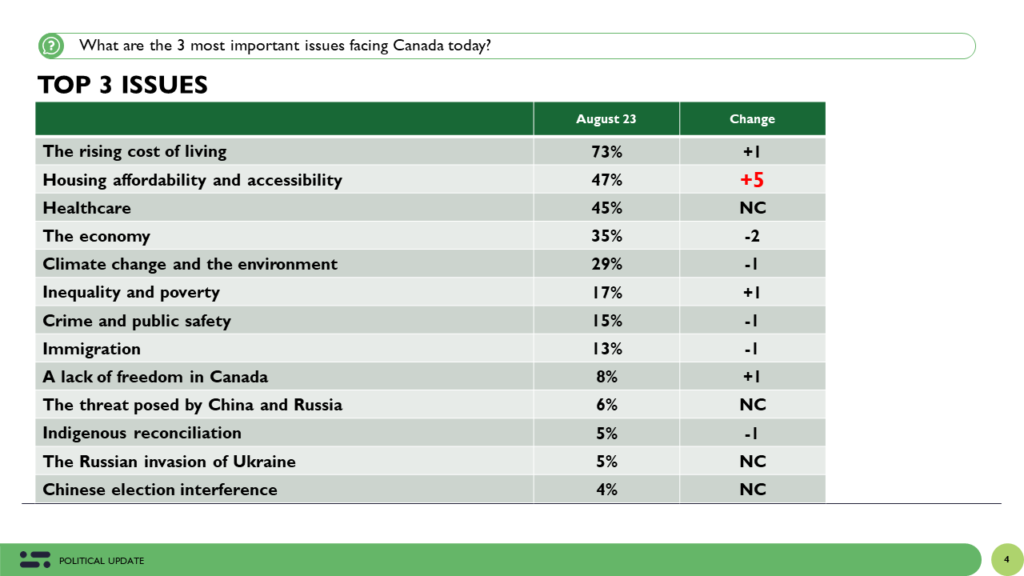
A similar number of Canadians from each generation agree on the importance of economic issues, both macro and micro, but there is a disconnect on the other top issues.
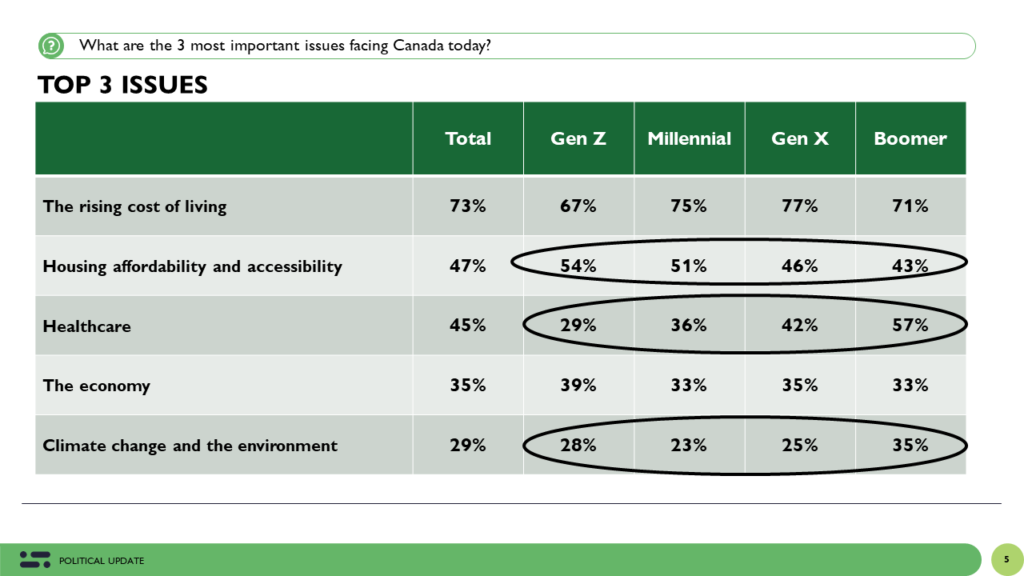
Unsurprisingly, but still worth noting, Gen Z and Millennials are much more likely to place housing affordability and accessibility in their top 3 issues compared to older generations.
What is surprising is the generational divide on climate change and the environment. Compared to Gen Z, Boomers are 7-pts more likely to place environment and climate change in their top 3 issues.
Gen Z are also much less likely to consider healthcare a top issue facing Canada.
Instead, Gen Z places a much greater emphasis on other social issues facing our country like inequality and poverty- one in four Gen Z in Canada place this in their top 3 issues, significantly higher than any other generation.
Gen Z (and Millennials) are also much more likely to say indigenous reconciliation is a top issue in Canada.
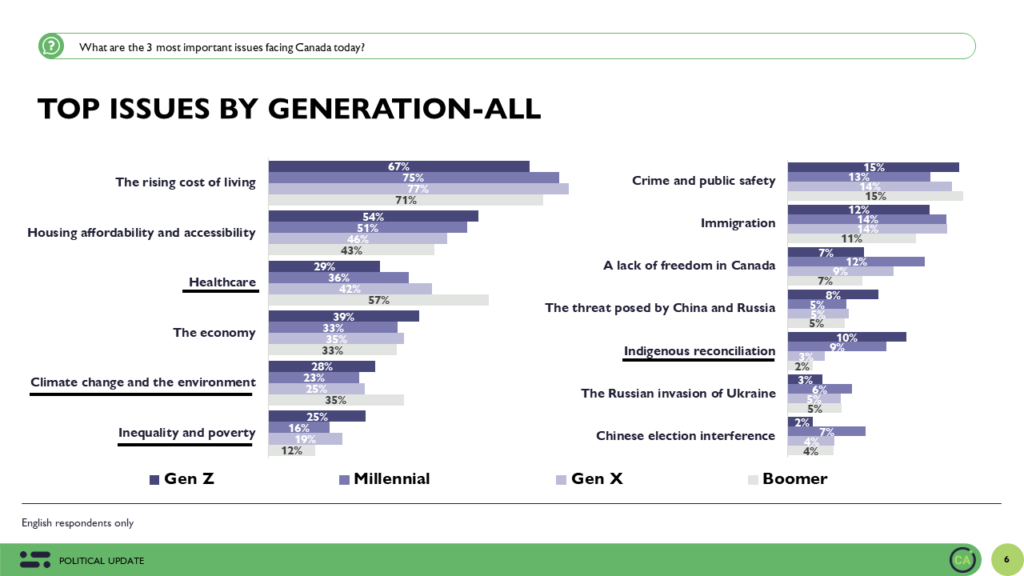
On all their top issues (aside from climate change) Gen Z says the Conservatives or NDP are best poised to address the issue, with the Conservative party best suited to address their economic concerns and the NDP best positioned to address the social issues they deem important.
The Upshot
The Liberals are struggling in the polls and right now it looks like Canada’s youngest voters aren’t going to be their saving grace. If an election was held today among the two youngest generations, the Liberals would fall to third party status.
On affordability, Gen Z Canadians are looking for solutions to the housing crisis- or at least some reassurance that things won’t get (much) worse.
And on social issues Gen Z is keen to see action on poverty and inequality, just as much as solutions for climate change.
Having experienced two economic downturns and entering the workforce at a time when wages are significantly lagging, financial stability is important for the younger generation. Not just because they want to pay their bills on time, but to give them hope that the aspirations, and dreams that come with being young have a chance of being achievable.
Witnessing these events as they reach adulthood and consuming more, diverse coverage than any generation before has (thanks to social media) has also made many young people believe we can do better. When tackling issues that affect their own financial and future instability, Gen Z believes should look at addressing poverty and inequality too.
For any party to tap into the support of Canada’s youngest generation they need to come ready with a message and solutions that address their top-of-mind issues. Right now, the two parties doing it best are the Conservatives and NDP.
Methodology
The survey was conducted with 2,189 Canadian adults from August 18 to 23, 2023. A random sample of panelists were invited to complete the survey from a set of partner panels based on the Lucid exchange platform. These partners are typically double opt-in survey panels, blended to manage out potential skews in the data from a single source.
The margin of error for a comparable probability-based random sample of the same size is +/- 2.1%, 19 times out of 20.
The data were weighted according to census data to ensure that the sample matched Canada’s population according to age, gender, educational attainment, and region. Totals may not add up to 100 due to rounding.
This survey was paid for by Abacus Data Inc.
Abacus Data follows the CRIC Public Opinion Research Standards and Disclosure Requirements that can be found here: https://canadianresearchinsightscouncil.ca/standards/
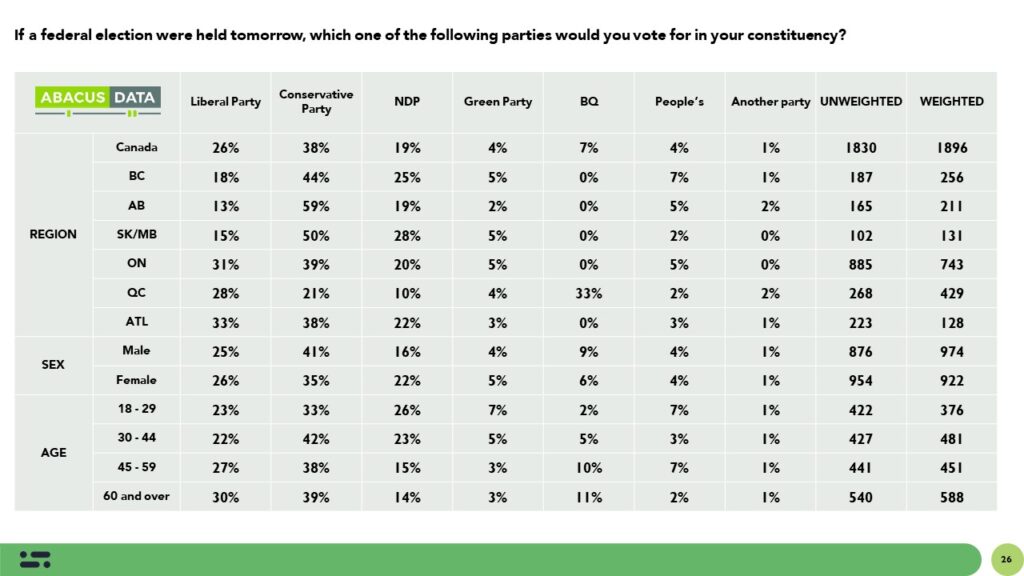
ABOUT ABACUS DATA
We are the only research and strategy firm that helps organizations respond to the disruptive risks and opportunities in a world where demographics and technology are changing more quickly than ever.
We are an innovative, fast-growing public opinion and marketing research consultancy. We use the latest technology, sound science, and deep experience to generate top-flight research-based advice to our clients. We offer global research capacity with a strong focus on customer service, attention to detail, and exceptional value.
We were one of the most accurate pollsters conducting research during the 2021 Canadian election following up on our outstanding record in 2019.
Contact us with any questions.
Find out more about how we can help your organization by downloading our corporate profile and service offering.



